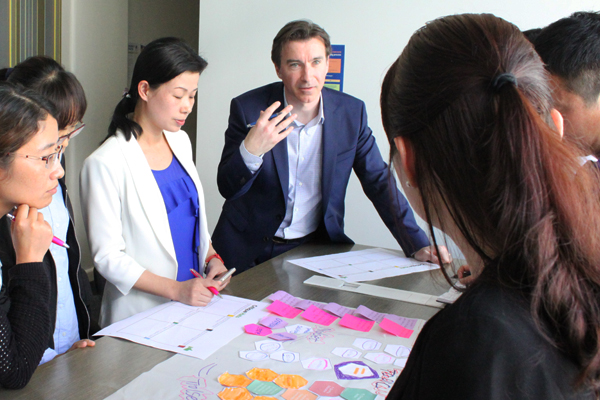by
User Not Found
| Feb 28, 2018
Hamish Curry, Executive Director, Asia Education Foundation

Australia sits amongst one of the most diverse, culturally-rich and aspiring regions in the world. Our Asia region has been incredibly successful in fields like technology, medicine, entrepreneurship and education to name a few. This kind of growth makes it our collective responsibility to equip 'young Australians to be ready for the world’- a goal that drives the work of the Asia Education Foundation (AEF).
However the pace with which Australia has leveraged and amplified our proximity to Asia seems to have been painfully slow at times – especially in school education. It’s like someone slowly sinking into a reclusive corner while the world’s most diverse party is happening. Professor Tim Lindsey from The University of Melbourne lamented that, "It seems like some sort of major policy failure that we should be located in Asia and looking at the collapse of Asia literate capacity outside people of an Asian origin."
There is a real opportunity to turn this around with the rise of global ambitions to make education more focussed on C-words like creativity, collaboration and communication. We are poised to reimagine the learning our young people can develop, and tap into their boundless empathy for the world around them.
Appreciating the ways in which language and culture integrate with and influence fields like technology, medicine, entrepreneurship and education not only builds intercultural understanding, but opens the opportunities our young people have to carve out strong networks and be more globally competent citizens. The schools that design and network experiences that tap into these in Asia will be leading the way for what it means to be 'globally competent'. At a minimum the fact that PISA will test for ‘Global Competence’ this year will spark some deep thinking about what perspectives and policies we need to shift to make this happen; but I’m not going to hold out hope for that alone.
For deep learning to happen, there needs to be time for immersive experiences and analysis, and sustained motivation to see solutions tested and explored. Having recently spent a number of years travelling around Australia and Asia helping all kinds of schools and organisations tap into deeper learning through design thinking methodology and processes, people develop profoundly better skills in communication and collaboration. We need to move beyond seeing 'global competence' or 'intercultural understanding' as a cursory exposure in a topic, idea or piece of curriculum, and design better learning experiences that integrate stronger provocations and explorations. Not just about the darker elements of poverty, racism, or climate change, but also through inspiring shifts in communities and relationships, and in innovation and invention. Very often it is getting people asking the right questions, and honing their empathy around their own learning culture.
A ‘learning culture’ is a combination of the people, programs, policies and places that a school or institution uses to deliver an education. In my opinion these are often as unique as a fingerprint. The barriers then tend to be having a whole school speak and share in the same language of learning. The list of those C-words like communication, creativity, and collaboration then come into play. Using wider networks, an appetite for change, and fresh formats help young people see themselves as part of a much bigger neighbourhood. I often like to refer to these c-words as ‘See-words’: what do you see in the learning that happens? How does Australia’s place in Asia amplify these? A lot more than at first glance; that's what the AEF has been nurturing.
As the incoming Executive Director of the AEF, I want to really transform the way young Australians experience their engagement with the Asia region and help their education to be a major catalyst. It requires continued innovation in technology, and changes in how people collaborate and embrace creativity. The first step is the empathy needed on the part of everyone involved to see how connected we are to this part of the world and how rich the benefits might be to better know and understand each other. Languages will be important, as will the rich learning possibilities in every learning domain.
These are the kinds of ambitions that drive my commitment to further enabling the AEF to help young Australians navigate the barriers with better ways to learn, and connect the people, programs and places in Asia to make it happen.
Comment